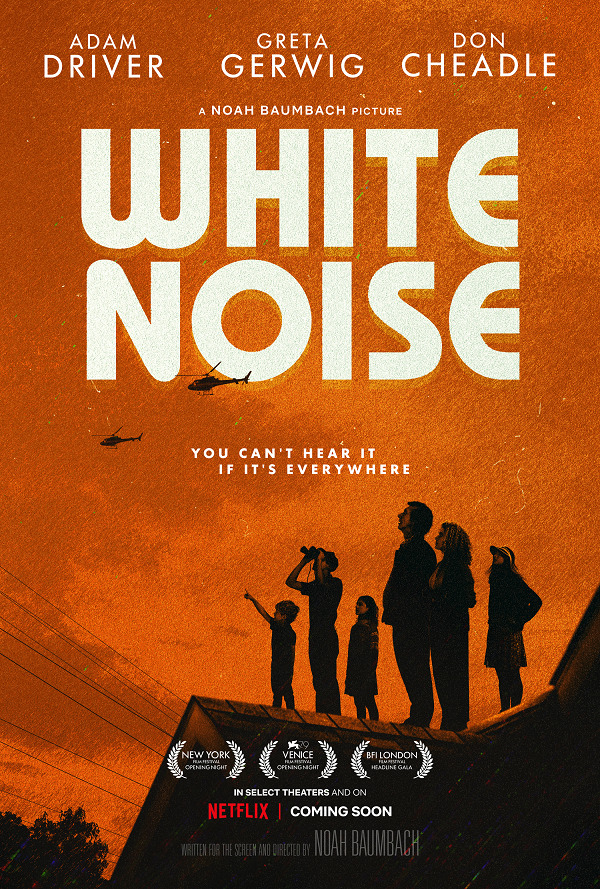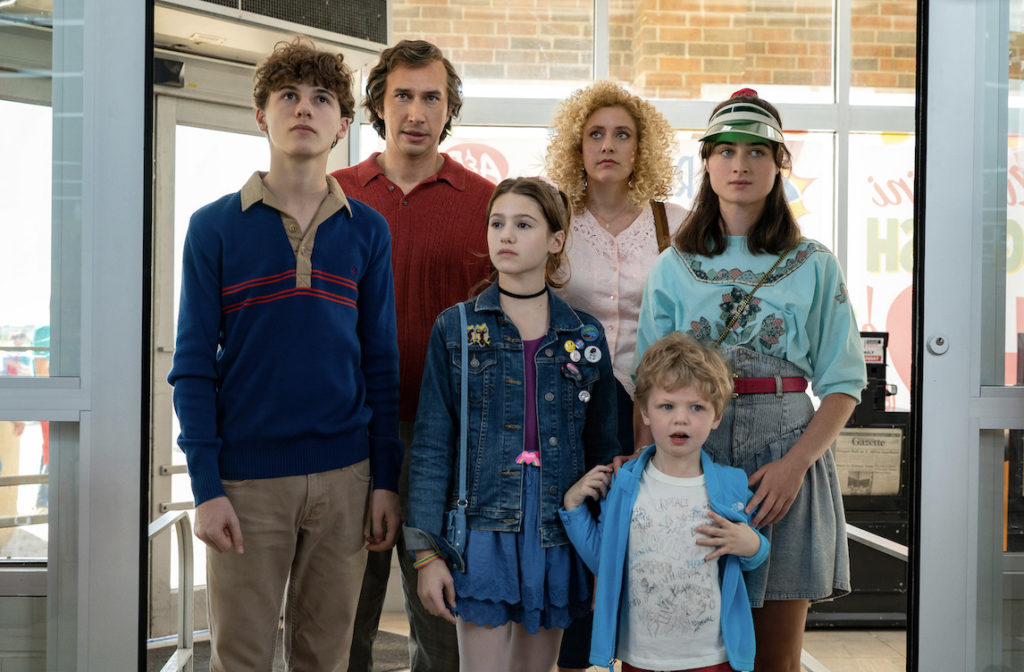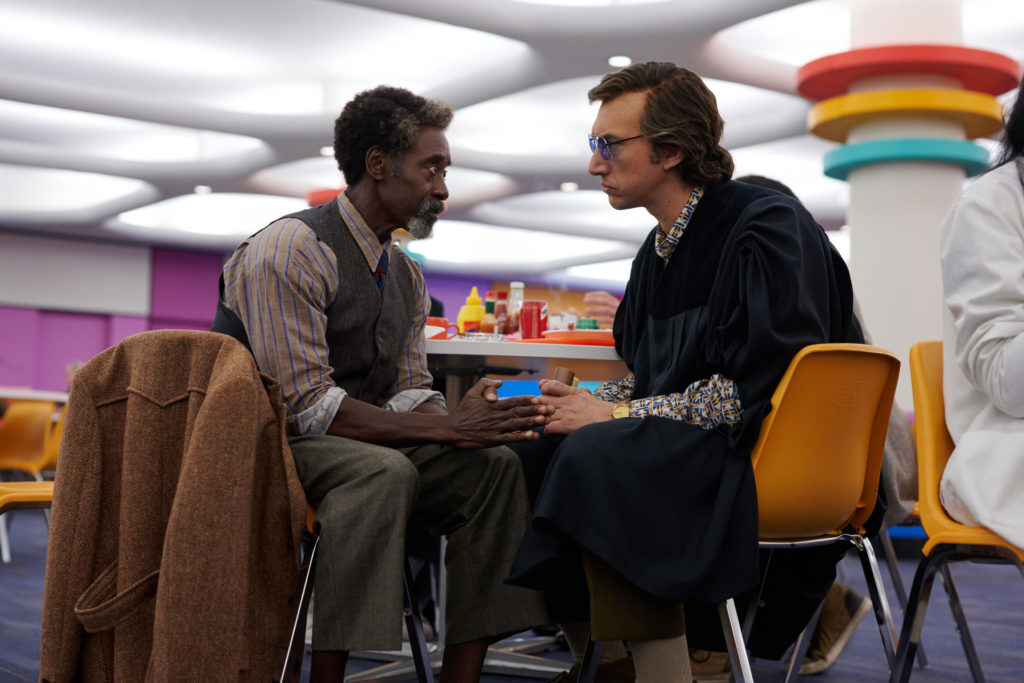
Many directors throughout film history have a well defined signature. They’re always associated with a specific type of film. Even though Martin Scorsese has made many films outside the crime/suspense genre, the majority of moviegoers will think only of his gangster pics. Noah Baumbach on the other hand, has almost exclusively delivered personal, dramatic tales about a specific type of family unit. In adapting the oft deemed unadaptable Don DeLillo novel, White Noise, Baumbach is stepping outside his visual comfort zone in a grand way; but does it succeed?
Prof. Jack Gladney (Adam Driver) is a highly regarded educator and lecturer at College-on-the-Hill university. He grew to notoriety as the world’s foremost expect in Hitler studies. Along with his wife Babette (Greta Gerwig) and their four children, the subjects of existential philosophies and disasters (both natural and unnatural) dominate every corner of their being. In the moments leading up to and through a tragic accident that occurs near their home, they are forced to deal with some of the subjects in a more up-close and personal manner than they ever expected.
White Noise is satire to the max. Like the novel, it takes a hyper absurd version of real life to help sort through the actual absurdity of our lifestyles. And while out current world events are spinning out of control, the film’s plot comes straight from the book. So, while a story written in 1985 might feel like its ideas would be somewhat unseen in our lifetime; the film feels more like an abstract looks at current events. In doing so (whether intentional or not) a lot of the broader themes of the story become lost in what feels more like parody and less like satire.

The still absurd, but still meaningful juxtaposition between Hitler and Elvis as delivered by a 1985 novel can be measured to mean a few different things. Presented now though, in 2022, it feels more like a commentary on the current state of “Cult of Personality” that suffocates our every day life. Instead of looking at the meaning of the cause, viewers can instead take it as a view into those that follow the cult. There is a loss in translation this way, even though the film is translating the book very tightly. And views on what the book was trying to do can and should change with current climates, but there is a disconnection here that doesn’t get mended.
An overall exploration into life, death, and the overwhelming terror of existential dread are clear focus points by the end of the film. But their mentions and attention to detail leading up to the finale feel like breadcrumbs. Not the type that lead you to an answer, but the ones that fall into your bed sheet when you stupidly eat there. You brush them away, vacuum them up…but still they leave a nagging itch on your skin.
In the most un-Baumbach scene in a Baumbach movie, Jack is haunted by a nightmarish visitor in the night. It’s a really brilliant and well put together little horror vignette. It receives a call back or two leading up to the story’s finale, but feels more like it is left behind and just another little drop in the pond that echoes away till its needed again. Though the book is only 300+ pages, the film had too much space to loose some of the luster. While bright, witty, and chaotic; the move felt like a chore to sit through at points.

As good as its actor’s have been throughout their careers, most of them seemed to miss the fine line between absurdity and true satire. These are not bad performances, but Adam seems to be stuck more in a low grade Zucker/Abrams/Zucker romp and Greta doesn’t make it far enough to be in comedic range. Don Cheadle as College-on-the-Hill professor Murray Siskand is the only one who hit nail on the head when it came to a balanced performance. As today’s kids would say, Don understood the assignment.
White Noise is ultimately a bit confusing, but not in a bad way. Baumbach certainly swung hard and connected on a presenting a grand visual style that is far from his normal work. He competently and mostly purely adapted White Noise to the screen without loosing how it presented its ideas. But that might be the part where it fails. Some more artistic freedom might have been needed to deliver the DeLillo’s ideas into 2022.
Grade: B-
Check out more of Matthew’s articles.
Here’s the trailer of the film.

